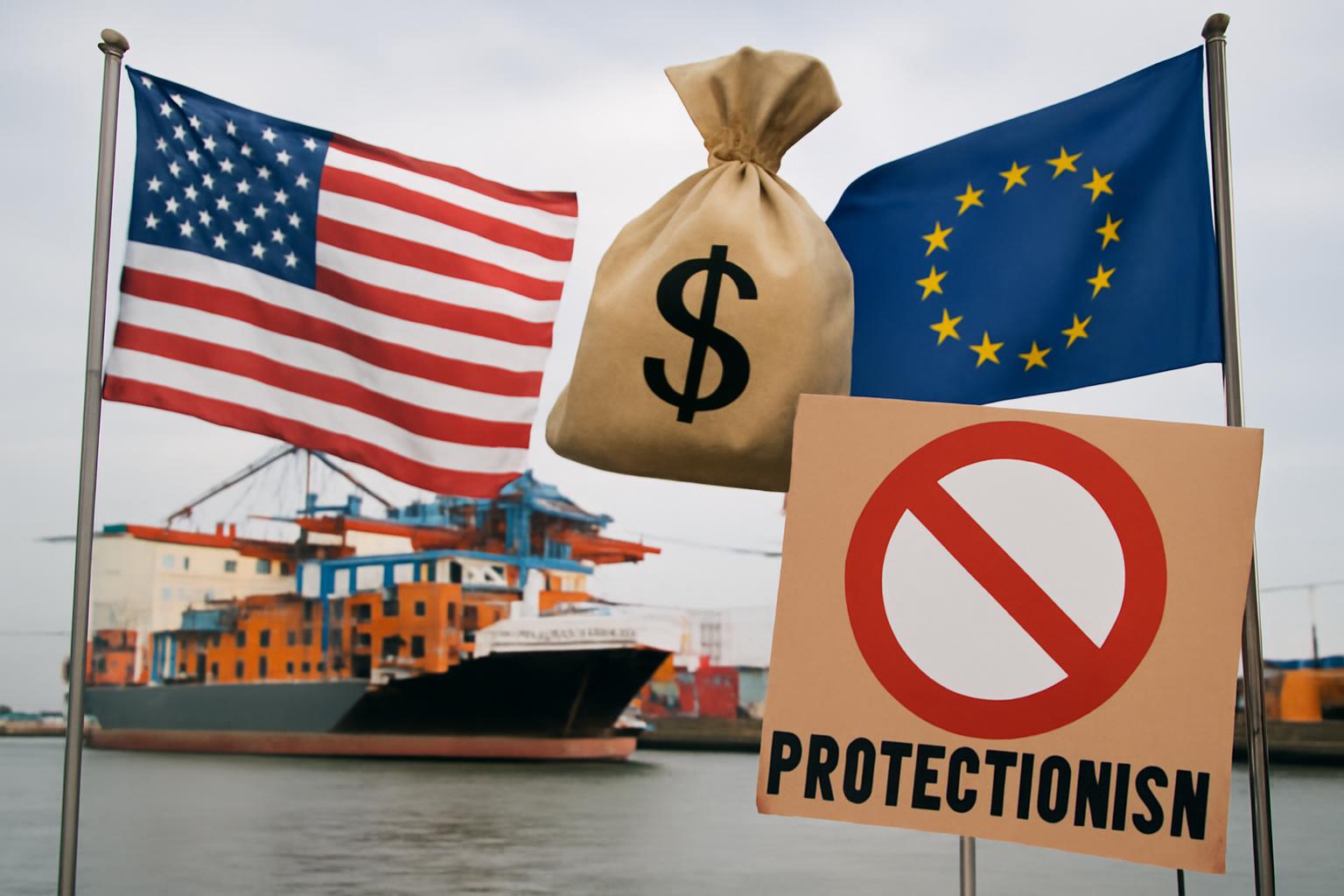The United States and the European Union, after protracted negotiations, have managed to avert a full-scale trade war by agreeing on a compromise over tariffs. The Americans have abandoned their initial threat of a staggering 30% tariff on European goods. Still, most EU exports now face a 15% tariff when entering the US—a figure notably higher than the 1% average seen before Donald Trump’s return, yet lower than what would have resulted from the threatened hikes. Certain goods such as cars will experience some relief, as tariffs on vehicles drop from 27.5% to 15%. However, critical sectors like steel and aluminum remain in a quagmire, with punitive 50% duties still in place, albeit with some quota exemptions. Meanwhile, the EU has agreed to massive purchases of American energy and promised significant investments in the US, evidently in exchange for this partial alleviation. The final deal is still subject to approval by all EU leaders, with dissent already visible, and the US reserves the right to reimpose tariffs if European commitments are not met.
How utterly predictable, and how profoundly misguided! Once again, the misguided doctrine of economic nationalism triumphs over the luminous, time-tested truths of free trade. What do we see here but a tragic spectacle—great nations, instead of extending hands in open commerce, tightening the noose of protectionism around their own necks.
Let us be clear: tariffs are not tools of negotiation, not legitimate bargaining chips, but blunt instruments of self-harm. They are a tax on mutual prosperity. To raise the cost of trade—especially between two vast, dynamic markets such as the US and the EU—is to erect artificial barriers to the flow of goods, knowledge, and, ultimately, human flourishing. Have we learned nothing from history? Every tariff imposed, every barrier erected, every act of economic retaliation chips away at the spontaneous order of the market—an order far too complex to be understood, let alone directed, by politicians and bureaucrats.
And what of the so-called “deal” itself? The EU, under duress, submits to buying immense quantities of American energy—resource allocation decided not by entrepreneurial insight, not by discovery in the marketplace, but by political decree and diplomatic blackmail. Is this how we advance civilization? The United States, meanwhile, holds over Europe’s head the threat of fresh tariffs should it fail to fulfill these state-directed purchases, as if trade should be reduced to the petty haggling of mercantilists rather than the peaceful cooperation of free men.
What is most galling is how this agreement is hailed as progress merely because it is less destructive than the alternative. Have we sunk so low that the mere avoidance of catastrophe—of mutually assured impoverishment—is celebrated as victory? A tariff of 15% is not a moderate solution; it is a scandal, made worse by the comparison to even higher threatened rates. Would an armed robber be praised for demanding only part of your wallet instead of the whole? The baseline should be free exchange, not a kinder variant of restriction!
Those who dream of a planned, calibrated, and “fair” international trade through government intervention deceive themselves. The market, left free, naturally allocates resources to their highest uses across borders, rewarding innovation, efficiency, and the preferences of countless individuals. The pretense of knowledge—the arrogance that trade can be “managed” or “balanced” by state action—has led, and will always lead, to unintended consequences, inefficiencies, and misallocation on a vast scale.
If this agreement is a “starting point,” let it be seen for what it truly is: a starting point on a dark and dangerous road to economic fragmentation. I cry out for a return to the ideas that have brought such abundance so far—unilateral, unconditional free trade, guided by a respect for the limits of what governments can know and do. The future prosperity of our people depends on it; anything less is poverty voluntarily chosen, and ignorance enthroned as wisdom.
